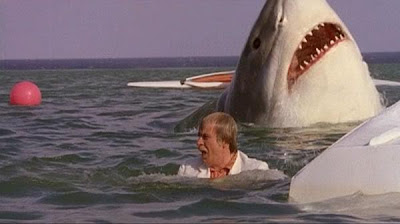
Perfect Education: 40 Days of Love (2001)
Yoichi Nishiyama, Director.
89 Minutes.
Psychologist Akai sees a depressed young woman by a bridge outside his office every day. Curious, he approaches her and she propositions him. He politely declines but offers her treatment to help her cope with what is bothering her. She accepts and he soon elects to use hypnosis as a treatment. Through this hypnosis it is revealed that several years earlier she was abducted by a teacher named Tatsuaki Sumikawa and held captive for forty days. From this revelation, the rest of the film takes place in a series of flashbacks, as Haruka explains the circumstances of her time in captivity.

Perfect Education 40 Days of Love is the second film in a series of seven films in total, (if I have my information correct) that are unrelated to each other beyond the title. I haven't seen any of the other films in the series, myself, but this one works fine as a stand alone film. It was the debut film from director Yoichi Nishiyama, who also directed such films as Trouble Maker Lucy, Fateful, and Gurozuka. It is also the film debut performance of Japanese model Rie Rukami, who plays the role of kidnapped girl Haruka Tsumura. The kidnapper, Tatsuaki Sumikawa is played by Yasuhito Hida who may be known to readers from his role as Bad Ronin Kuroiwa in Samurai Fiction among other performances. (I also maintain that Hida looks like a Japanese John Cazale in this.) Rounding out the primary cast of the film is veteran character actor Naoto Takenaka, playing the role of the psychologist, Akai.
One of the things that I think that the film handles really well is that Sumikawa never feels like a one note character. Right from the beginning, he seems at odds with himself about the actions he's taking. For example, in his one attempt to force himself on her sexually, he stops as soon as she starts to struggle and begins apologizing for his actions. In a standard exploitation style film, which is what this one looks like it would be on the surface, you might expect the Sumikawa character to be aggressive and forcing himself violently on Haruka throughout the film. But this isn't just a basic exploitation film, coated in the typical gratuitous sexualized violence. Instead, he comes across as a lonely and conflicted man, having taken this extreme step of abducting a woman out of desperation for companionship and wanting to teach her to become the perfect lover for him. Although it certainly doesn't excuse the character's actions, it does help to humanize him.

Another element of the film that I found to be a really interesting touch is that we spend the majority of the time with Haruka in the small apartment, sealed off from the outside world. It is not until she is allowed to venture out one evening with Sumikawa that we find out the degree of effort being put forth to find her by her family and the police. We only see her perception of things, which is limited to a single television news segment near the beginning of her abduction.
The film never really goes to the kinds of extremes that one might expect from it, and that is to its benefit, I think. It elevates the film from being simply exploitation and turns out to be something of a meditation on loneliness and the desire for love. Although unconventional of course, it is made abundantly clear that Sumikawa truly does love Haruka, and does care about her happiness in his own, very flawed way. Also in a flawed sort of way, Haruka comes to love Sumikawa as well, and eventually starts to refer to him as 'Dad'. This rather disturbing moniker is chosen by Sumikawa simply because, as he puts it, he couldn't come up with any better idea.

This is not to say that the film is void of exploitative elements, it certainly has it's share. For a good portion of the film, Haruka is topless, bound with rope or chain, and gagged. Often treated like a pet, she spends her days bound up on the bed with a TV and food to occupy her until Sumikawa returns home from work. Every night he bathes her, takes a polaroid photo of her and writes the date and her weight on it. These pictures are posted on the wall, presumably to track the progression of her time with him. It is during one of the first of these baths, in what I thought was a particularly odd move, he leans over and licks her soap covered shoulder. Getting a tongue coated in bath soap doesn't seem like a desirable choice to me, but that's just one person's opinion.

Rie Rukami represents the weakest link of the film for me. She does a decent job in her role, but is clearly outranked by her cast mates. Having not seen any of her other films, it's kind of unclear to me if she has difficulty expressing emotions as an actress or if it is the character that she is playing. We learn early on that her character grew up without a father and is a rather quiet and lonely girl who doesn't feel particularly close to her friends. This sense of detachment that she carries could be argued as being portrayed in the occasionally wooden looking performance that she gives for the first two thirds of the film.
While it is not without its flaws, all in all, I think Perfect Education 40 Days of Love is certainly worth a look for fans of the genre. It can be found for rent or purchase at Japanflix.com. They also have other interesting looking Japanese films available that I've never seen.
Would you like to read a second opinion? Check out this review by my friend Coffin Jon, of VCinema Podcast. =)
You can view the trailer for Perfect Education: 40 Days of Love below:
Comments are always welcome!



























































